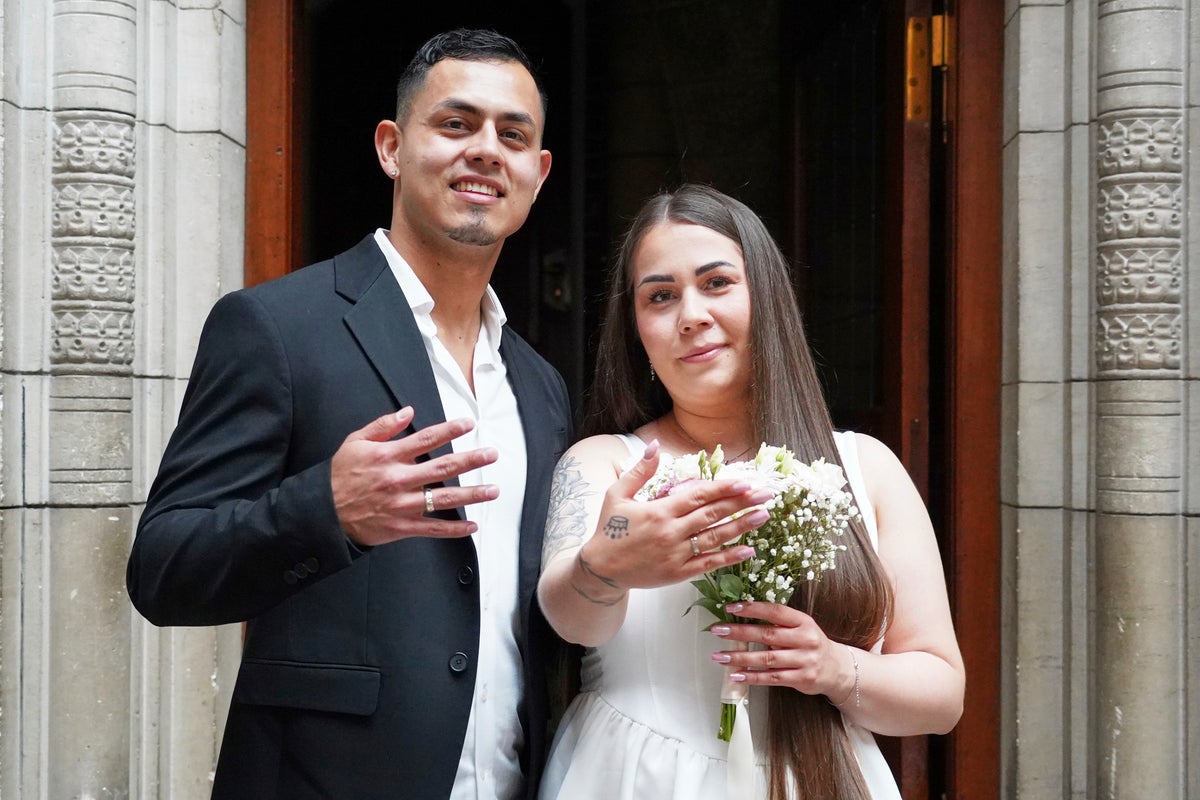
A Polish-Colombian couple, Magdalena Kujawińska and Heinner Valenzuela, travelled to Copenhagen to marry, circumventing complex bureaucracy at home in Poland.
Living in Krakow, the couple had been engaged for over three years but faced significant hurdles.
“We realised that it’s not that easy to get married in Poland,” the 30-year-old Ms Kujawińska said, citing the requirement for a certificate proving they were not already married.
A certificate, needed from Colombia, presented an insurmountable challenge due to its three-month validity.
“We tried to get it from Colombia, but it’s only valid for three months, and it couldn’t get to Poland from Colombia in three months. It was just impossible for us,” she added.
Learning about Denmark’s relaxed marriage laws from a colleague, Ms Kujawińska and her fiancé engaged an online wedding planner. The process proved remarkably swift, with approval granted in just four days.
“And in four days, we had the decision that the marriage could be done here,” a smiling Ms Kujawińska recounted as they awaited their 10-minute ceremony at Copenhagen’s 19th-century City Hall.
Copenhagen attracts couples from around the world
Couples who don’t live in Denmark, both mixed- and same-sex, are increasingly getting married in the Scandinavian country — prompting some to dub Copenhagen the “Las Vegas of Europe.”
The head of the marriage office at Copenhagen City Hall, Anita Okkels Birk Thomsen, said that about 8,000 wedding ceremonies were performed there last year. Of those, some 5,400 of them were for couples in which neither partner was a Danish resident.
“That’s almost double what we saw five years ago,” she said. “They come from all over the world.”
City wants to ensure room for locals
But the city sees a downside to that: demand for ceremonies at City Hall now far exceeds the number of slots available.
Mia Nyegaard, the Copenhagen official in charge of culture and leisure, said in a statement to The Associated Press that the “significant rise” in the number of foreign couples getting married in the capital “poses challenges for Copenhagen-based couples wishing to get married.”
Local authorities plan to take action. Nyegaard said about 40 percent of wedding slots available at City Hall will be reserved for Copenhagen residents starting from the end of October.
While booking a slot there is the most obvious way to get married in the city, arranging a ceremony with a private registrar is also an option, and that won’t be affected.
Copenhagen lawmakers will look after the summer break at what else they can do to relieve overall pressure on wedding capacity in the city.
Liberal laws
Denmark’s marriage laws are liberal in several ways. In 1989, the country became the world’s first to allow the registration of same-sex civil unions. The legalisation of same-sex marriage followed in 2012.
For unions of all kinds, Denmark — unlike many other European countries — doesn’t require a birth certificate or proof of single status to obtain a certificate that grants the right to get married in Denmark within four months. Officials might, in cases where divorce papers don’t show clearly that a divorce has been finalised, ask for a civil status certificate.
Applications to Denmark’s agency of family law cost 2,100 kroner ($326), and couples are issued with a certificate within five working days if they satisfy the requirements.
Non-resident couples can travel to Denmark and get married with just a valid passport and, if required, a tourist visa.
“We get that thing like, ‘Are you sure we do not need a birth certificate?’ And we go, ‘Yes,’” said Rasmus Clarck Sørensen, director of Getting Married in Denmark.
Clarck Sørensen, a Dane, began the wedding planning business with his British wife back in 2014.
“In the last 20, 30 years, people just meet more across borders,” he said. “Marriage rules are often made for two people of the same country getting married.”
“They kind of piled on patches onto marriage law, and a lot of people get trapped in those patches,” he added.
His online company’s “Complete Service” package, priced at 875 euros ($1,014), includes help gathering all the necessary documents, processing the certificate application and organising the date of the ceremony.
The business says it helped over 2,600 couples last year.
Copenhagen, easily Denmark’s biggest city with the country’s best transport links, is the most popular location and so far appears to be the only one struggling with demand.
Any changes to the city’s rules will come too late to bother newlyweds Kujawińska and Valenzuela, who are now busy planning a celebration in Poland with family and friends.
“It means a lot for us because we’ve been waiting a lot for this,” Kujawińska said. “We’re really happy.”
